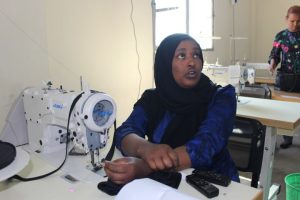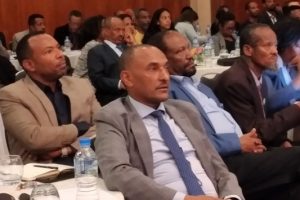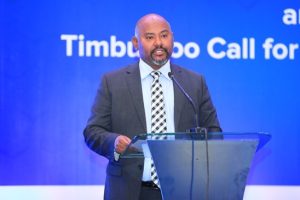
-Experts weigh on issues to consider to fully exercise power
As the call for Africa’s permanent representation in United Nations Security Council (UNSC) grows experts argue the continent needs to take a bevy of measures to unlock its full potentials and assert its leverage in the world’s highest security body.
Almost 80 years on, Africa has been unrepresented and largely remained a missing entity in the UNSC even when its internal political and security matters are discussed and decisions passed.
The absence of the populous and biggest continent from the international bloc made the path to peace and conflict resolution elusive. The resolutions that the UNSC passes and the directions it sets mostly go unheeded and unyielding due to the continent’s exclusion in the process.
Since recently, the exclusion of the continent of 1.5 billion people from the security bloc raises serious concerns about the fairness and efficacy of the global governing system. This concern gained traction and intensity lately with African countries like Ethiopia setting the tone and spearheading the efforts.
Many see the persistent challenges such as security threats, famine, drought, and terrorism as product of systemic inequities faced by the continent of 55 nations. The absence of a permanent seat in the UNSC has become a focal point for many advocating for reform of international system.
While the question of representation takes roots, experts have been signaling the need to elevate Africa’s positions in different spheres for the continent to exercise its deserved places to the fullest.
However, achieving this goal according to experts will require more than diplomatic efforts; it necessitates a concerted push to harness technological advancements and improve governance structures within African nations.
Moreover, some experts argue that instead of focusing solely on securing permanent seats at the UN, African nations should pursue the right to vote powers. This strategy could provide a more effective means of influencing decisions that impact the continent, ensuring that African voices are heard and considered in global governance.
In August 2024, UN Secretary-General Antonio Guterres reignited this long-standing issue, asserting the necessity for African representation in the UNSC. He argued that the Council’s current membership does not reflect global dynamics and that Africa’s exclusion is increasingly untenable.
The lack of African voices in critical discussions hampers effective solutions to the continent’s unique problems.
With a population growing alarmingly, many experts contend that Africa’s absence not only undermines the continent’s interests but also hampers global efforts toward peace and security.
Experts agree that securing a permanent seat for Africa in the UNSC could significantly enhance the continent’s ability to address its unique challenges.
Guterres has reiterated that these issues require resolute actions and renewed cooperation. He expressed hope for reforms that would see Africa represented in the UNSC, stating, “Let this be corrected soon.”
The call for a permanent seat is about reshaping the narrative surrounding Africa’s role in the global arena. By participating in the UNSC, African nations could articulate their needs, set agendas, and amplify their voices. This shift would transform perceptions of Africa from a continent in crisis to one of potential and leadership.
The implications of such a shift are profound. With a permanent seat, Africa could better advocate for pressing issues like climate change, economic inequality, and conflict resolution all of which disproportionately affect its nations. The continent’s unique perspective is essential for crafting solutions that are not only effective but also equitable and just.
Worku Yakob (PhD), General Director of African Change for Interaction and Think Tank, emphasized that securing a permanent seat requires significant groundwork and collaboration at the country level.
He noted that many African countries have drifted away from a culture of collective development and mutual agreement, fostering conflict and eroding trust. This lack of unity undermines confidence in any single country chosen to represent the continent. Often, the elected country finds itself constrained by Western influences, which can impede its ability to advocate effectively for African interests.
Worku suggested that rather than pursuing individual representation at the UN, Africa should present a united front through the African Union. The approach could enhance collective bargaining power and ensure that Africa’s interests are more effectively represented.
Tesfaye Abate (PhD) is a law professor and legal advisor at the Ethiopian Civil Service University. He asserted that such representation would empower Africa to tackle its challenges more effectively. “The continent’s contributions to global peacekeeping and conflict resolution are often overlooked, leaving Africa vulnerable to decisions made without its input.”
The absence of a permanent UNSC seat has detrimental effects on Africa’s developmental aspirations. Developing countries striving for growth and stability find their progress stifled by a lack of voice in critical international discussions. A permanent seat would enable African nations to vote on issues affecting their futures, fostering an environment conducive to sustainable development.
The flight toward securing a permanent seat for Africa in the UNSC is fraught with challenges, yet it is a goal that can and must be achieved. Africa’s voice should not only be heard but also influential in shaping the future of global governance.
The time has come for the United Nations to acknowledge Africa’s rightful place on the global stage, reflecting its demographic and geopolitical significance while enhancing the effectiveness of the Council in promoting peace and security worldwide.
BY FIKADU BELAY
THE ETHIOPIAN HERALD SATURDAY 2 NOVEMBER 2024





